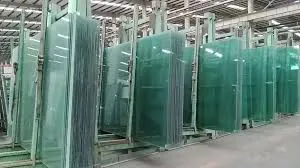The Allure of Tempered Glass Strength and Elegance Combined
In the realm of modern architecture and design, few materials embody the marriage of strength and aesthetic appeal quite like tempered glass. Often referred to as safety glass, tempered glass is produced through a process of extreme heating and rapid cooling, which enhances its strength compared to regular glass. This article delves into the attributes, applications, and advantages of tempered glass, exploring why it has become a favored choice in various industries.
The Manufacturing Process
Tempered glass undergoes a meticulous manufacturing process that begins with ordinary glass. The glass is cut to size and then heated to temperatures exceeding 600 degrees Celsius. This step is crucial, as it alters the internal structure of the glass, making it more resilient. Following this, the glass is rapidly cooled, a method known as quenching. This sudden change in temperature increases the surface tension of the glass, allowing it to withstand significant impact and thermal stress.
The result is a material that is up to five times stronger than standard glass. In the event of breakage, tempered glass shatters into small, blunt pieces rather than sharp shards, significantly reducing the risk of injury. This characteristic makes it an ideal choice for a variety of applications where safety is paramount.
Aesthetic Versatility
Beyond its strength, tempered glass is celebrated for its versatility and elegance. It is available in various finishes and can be treated for specific applications such as low-emissivity (Low-E) coatings that enhance energy efficiency. The transparency of tempered glass creates a seamless integration with architectural elements, allowing ample natural light to flood interior spaces while maintaining a sense of openness.
Whether it is used for large glass facades, shower enclosures, glass railings, or furniture, tempered glass offers a contemporary aesthetic that elevates any design. The clarity and brightness of glass can make spaces feel larger and more inviting, which is why it has become a staple in modern interior and exterior design.
Applications Across Industries
temp glass
The applications of tempered glass are vast and varied. In the architecture and construction industry, it is commonly used for windows, curtain walls, and storefronts. Its durability ensures that buildings are not only visually appealing but also capable of withstanding environmental stresses such as wind, rain, and the elements.
In residential settings, tempered glass is increasingly utilized in bathrooms for shower doors and tub enclosures, where both safety and style are critical. In kitchens, tempered glass is often found in backsplashes and countertops, offering an easy-to-clean surface that resists heat and stains.
Beyond residential applications, tempered glass is also pivotal in the automotive industry. Car windshields are often made from tempered glass for safety reasons, as they provide structural integrity and protect occupants from external forces during accidents.
Environmental Considerations
One of the benefits of tempered glass is its environmental friendliness. Glass is 100% recyclable, and the production of tempered glass often incorporates recycled materials. This aspect aligns with the growing demand for sustainable building materials and practices within various industries.
Moreover, the energy efficiency of tempered glass can contribute to lower energy costs in buildings. By allowing natural light to penetrate while reducing heat loss, it helps maintain comfortable indoor temperatures and decreases reliance on artificial lighting.
Conclusion
In conclusion, tempered glass is a remarkable material that embodies the principles of safety, strength, and aesthetic beauty. Its transformative manufacturing process equips it with the ability to endure impact and thermal stress, making it an essential component in architecture, design, and manufacturing. The versatility of tempered glass allows it to adapt to various applications, enhancing both functionality and style. As we continue to innovate and embrace sustainable practices, tempered glass will undoubtedly remain at the forefront of modern design, illuminating spaces while ensuring safety and elegance go hand in hand. Whether in our homes, vehicles, or workplaces, the allure of tempered glass is undeniable, creating environments that inspire and captivate.
 Afrikaans
Afrikaans  Albanian
Albanian  Amharic
Amharic  Arabic
Arabic  Armenian
Armenian  Azerbaijani
Azerbaijani  Basque
Basque  Belarusian
Belarusian  Bengali
Bengali  Bosnian
Bosnian  Bulgarian
Bulgarian  Catalan
Catalan  Cebuano
Cebuano  Corsican
Corsican  Croatian
Croatian  Czech
Czech  Danish
Danish  Dutch
Dutch  English
English  Esperanto
Esperanto  Estonian
Estonian  Finnish
Finnish  French
French  Frisian
Frisian  Galician
Galician  Georgian
Georgian  German
German  Greek
Greek  Gujarati
Gujarati  Haitian Creole
Haitian Creole  hausa
hausa  hawaiian
hawaiian  Hebrew
Hebrew  Hindi
Hindi  Miao
Miao  Hungarian
Hungarian  Icelandic
Icelandic  igbo
igbo  Indonesian
Indonesian  irish
irish  Italian
Italian  Japanese
Japanese  Javanese
Javanese  Kannada
Kannada  kazakh
kazakh  Khmer
Khmer  Rwandese
Rwandese  Korean
Korean  Kurdish
Kurdish  Kyrgyz
Kyrgyz  Lao
Lao  Latin
Latin  Latvian
Latvian  Lithuanian
Lithuanian  Luxembourgish
Luxembourgish  Macedonian
Macedonian  Malgashi
Malgashi  Malay
Malay  Malayalam
Malayalam  Maltese
Maltese  Maori
Maori  Marathi
Marathi  Mongolian
Mongolian  Myanmar
Myanmar  Nepali
Nepali  Norwegian
Norwegian  Norwegian
Norwegian  Occitan
Occitan  Pashto
Pashto  Persian
Persian  Polish
Polish  Portuguese
Portuguese  Punjabi
Punjabi  Romanian
Romanian  Russian
Russian  Samoan
Samoan  Scottish Gaelic
Scottish Gaelic  Serbian
Serbian  Sesotho
Sesotho  Shona
Shona  Sindhi
Sindhi  Sinhala
Sinhala  Slovak
Slovak  Slovenian
Slovenian  Somali
Somali  Spanish
Spanish  Sundanese
Sundanese  Swahili
Swahili  Swedish
Swedish  Tagalog
Tagalog  Tajik
Tajik  Tamil
Tamil  Tatar
Tatar  Telugu
Telugu  Thai
Thai  Turkish
Turkish  Turkmen
Turkmen  Ukrainian
Ukrainian  Urdu
Urdu  Uighur
Uighur  Uzbek
Uzbek  Vietnamese
Vietnamese  Welsh
Welsh  Bantu
Bantu  Yiddish
Yiddish  Yoruba
Yoruba  Zulu
Zulu 

